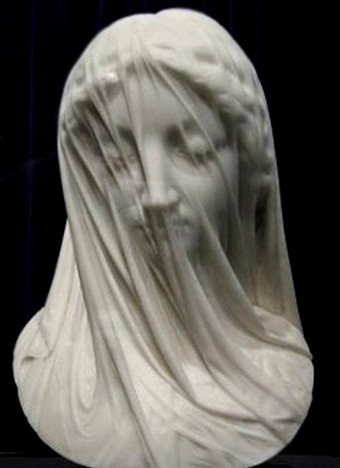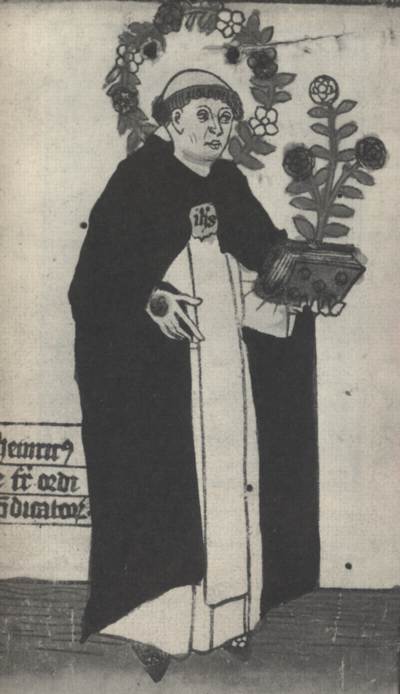Because, doing your actions (devotion) by our Blessed Lady, as this practice teaches, you abandon your own intentions and operations, although good and known, to lose yourself, so to speak, in the intentions of the Blessed Virgin, although they are unknown. Thus you enter by participation into the sublimity of her intentions, which are so pure that she gives more glory to God by the least of her actions—for example, in twirling her distaff or pointing her needle—than St Lawrence by his cruel martyrdom on the gridiron, or even all the saints by their heroic actions put together. It was thus that, during her sojourn here below, she acquired such an unspeakable aggregate of graces and merits that it were easier to count the stars of the firmament, the drops of water in the sea or the grains of sand upon its shore, than her merits and graces –St Louis de Montfort ‘True Devotion to Mary’
What did you do here upon the earth Holy Mother that produced such splendid praise? It was more than birthing Jesus. It must concern the way you lived your life throughout your life. How did you conduct yourself? Weren’t there people who used the name of your Son improperly that upset you? There had to be times you were right, yet others perceived you being wrong? Justifiable anger, did it overwhelm you even once? Enduring the suffering of Our Savior at the hands of the Roman soldiers how could your heart not be filled with anger and hate? During His passion, did you feel only sorrow, love and compassion for your Son? How did you do it Holy Mother? Your Son, Our Lord and Savior is Divine, the Son of God, yet you were absolutely human. How could you control your emotions and feelings so peacefully? Did prayer come naturally, purely, and easily to you? Didn’t others frustrate you through their imperfections? Weren’t there days you were slothful in thought and action? Times you wanted to curse God? Did not the praises of Elizabeth and Simeon fill you with even the slightest arrogance? Ohh Holy Mother listen to the pleading of one devoted to you, one who fails so miserably time after time. How did you do it Holy Mother? There had to be a time when pride overwhelmed you when you contemplated who you carried within your womb? How could you not feel righteous in raising yourself in your own eyes above others? You the truest of contemplatives, how did you know how to conduct yourself as you did? Who instructed you? Didn’t being so powerful in prayer elevate your self-esteem? False humility never plagued you? Playing the profound mystic for others never tempted you? Being admired as holy and wise never attracted you? You never lusted after sweet consolations? The wonders you experienced how could you not be self-absorbed? How could you be in constant acquiescence to Holy will? Did you not want to teach everyone, being right about all matters regarding your Son? Did the apostles comprehend the immensity of your majesty while enjoying your company? Did the beloved disciple John recognize you would be crowned in heaven, granted reign as Queen above all queens? I know so little about your earthly life. While alive, I see you as such a simple, quiet, yet commanding woman, one who garnered profound respect with a whisper, working efficaciously behind the scenes, while never dominating the thoughts of your compatriots. How could you be so simple, you amidst the most complex of lives? As my Holy Mother, I know you so well. I love you so dearly. You have always been so near. How blessed it is to have you always above me, sheltering me with your loving mantle. I have never doubted your presence, even during my darkest hours.
Our Lady’s words to Juan Diego: Let not your heart be disturbed. Am I not here, who is your Mother? Are you not under my protection? Am I not your health? Are you not happily within my fold? What else do you wish? Do not grieve nor be disturbed by anything.
On the day after the feast of the Assumption he was again shown great joy in the court of heaven. No one was trying to gain entrance who arrived unworthy. As the servant was trying to get in, a young man came up, grabbed him by the hand, and said, “Friend, you do not belong in there at this time. Stay outside. You have incurred guilt, and before you may hear the heavenly singing, you have to make up for your misdeed”. And he led him somewhere down a crooked path into a hole under the earth. There it was dark and barren and wretched. He could go neither this way nor that, like someone who lies captive where he can see neither sun nor moon. Finding this painful, he began to sigh and feel miserable because of his imprisonment. Soon the messenger came and asked how he was doing. “Poorly, poorly,” he replied. Then the young man said to him, “You should know that the exalted Queen of heaven is angry with you for that failing because of which you are a prisoner here”. The servant became frightened and said, “Alas, wretched me! How have I offended her?” He said, “She is angry with you because you do not like to preach about her on her feast days. And yesterday on her great feast day you refused, against the wish of your superior, to preach about her.” The servant replied, “Dear friend and lord, I think she is worthy of such great honor that I feel unequal to the task, and I leave it to the more mature and worthy (friars) because it seems to me that they can preach about her more worthily than a poor man like me”. The youth said, “Know that she would like you to do it, that she considers it a pleasing service from you. And so do not refuse anymore”. The servant began to weep and said to the young man, “Dear messenger, reconcile me to the pure Mother. I give you my word that it will never happen again”. The young man looked at him amicably, consoled him kindly, and led him out of the prison and back home. He said, “I could tell by the look on the friendly face of the Queen of heaven and by her words when she speaks of you that she forgives you. She is no longer angry with you and wants always to be like a mother to you”. Henry Suso “The Exemplar, The Life of The Servant”
Ann ease with the fighting nature. I truly had a premonition. I was concerned. Do not be so obstinate. I will approach you after mass calmly, holding to the Eucharist. If all is good say ‘do not worry’. If you struggle, please speak with me.






Recent Comments